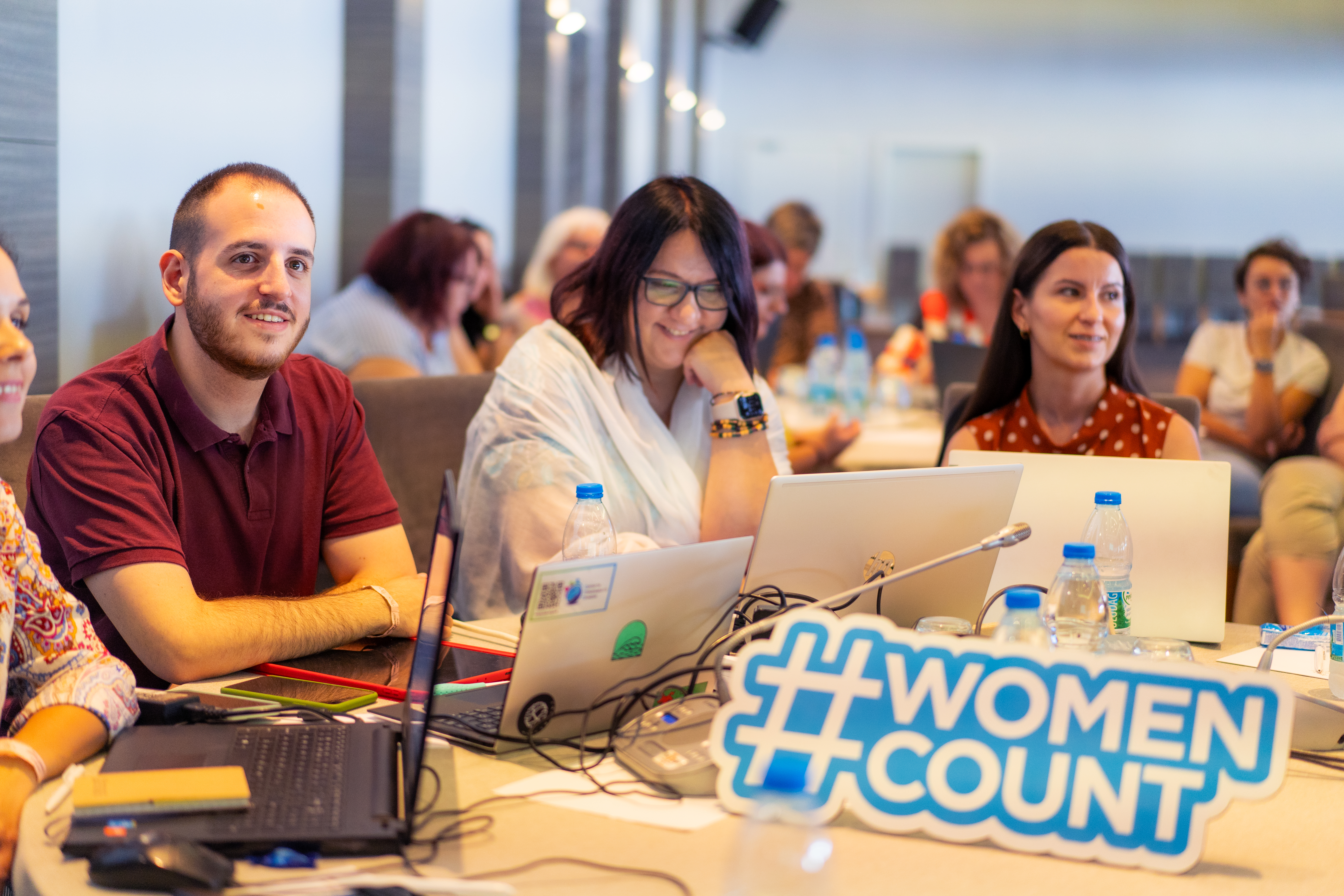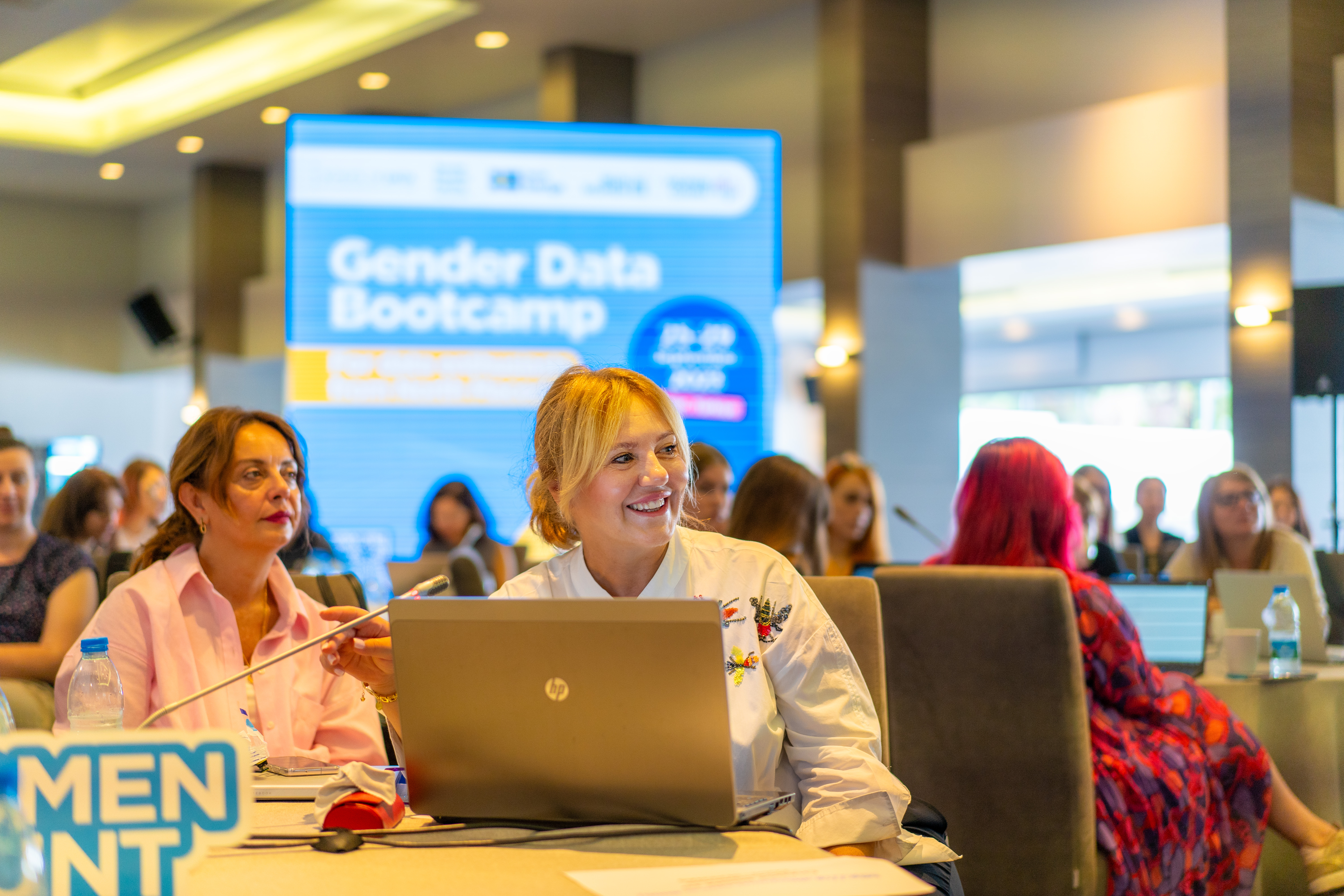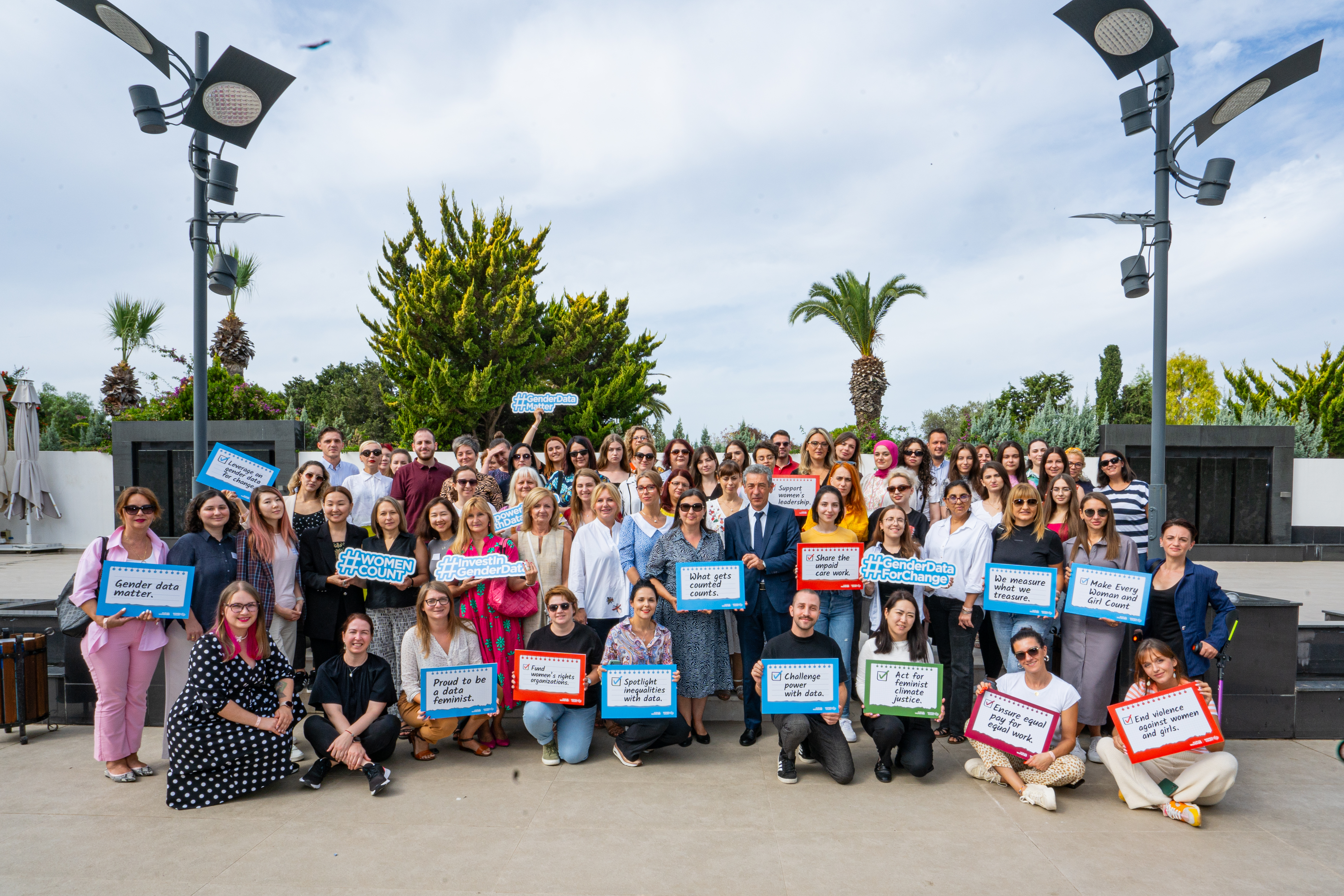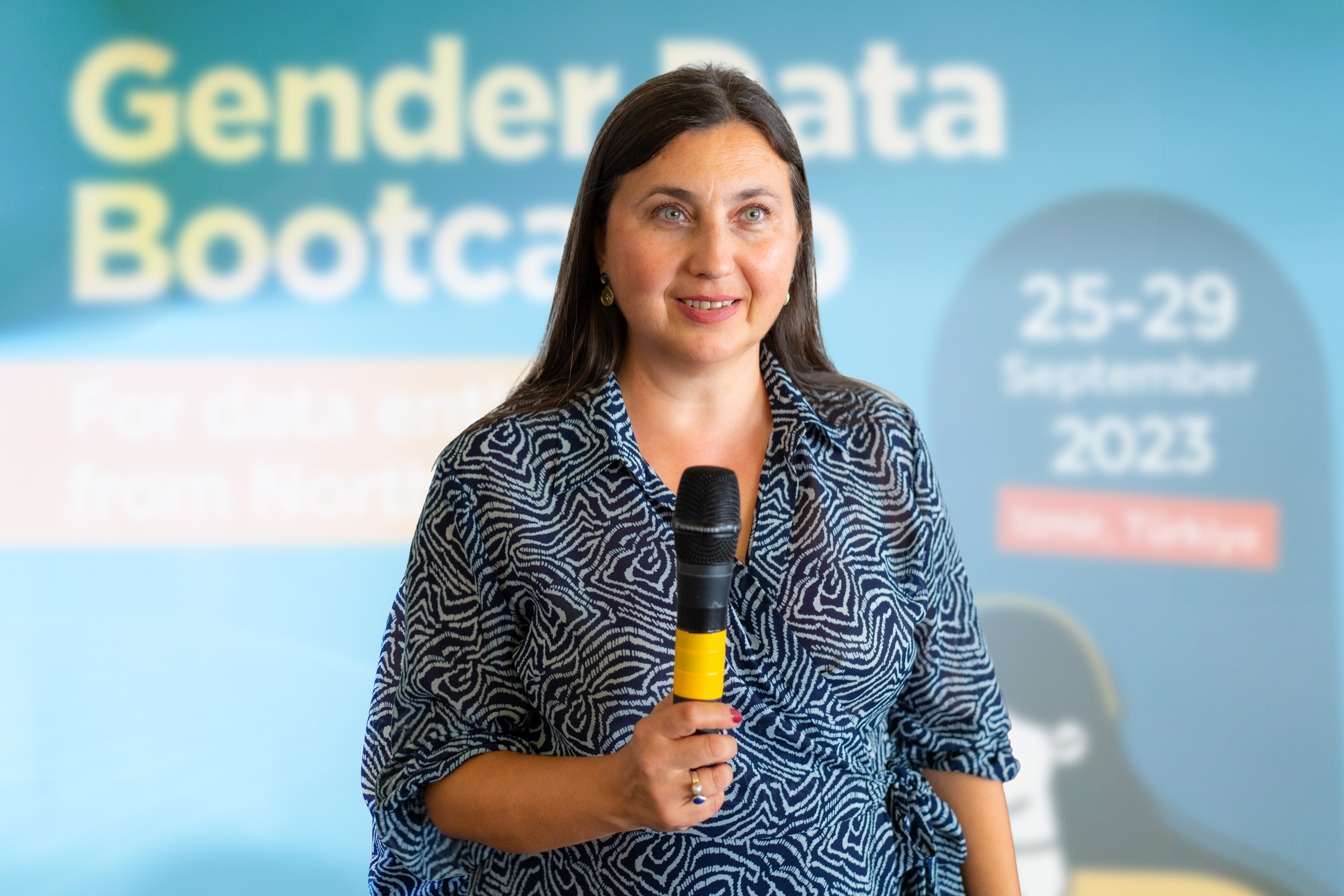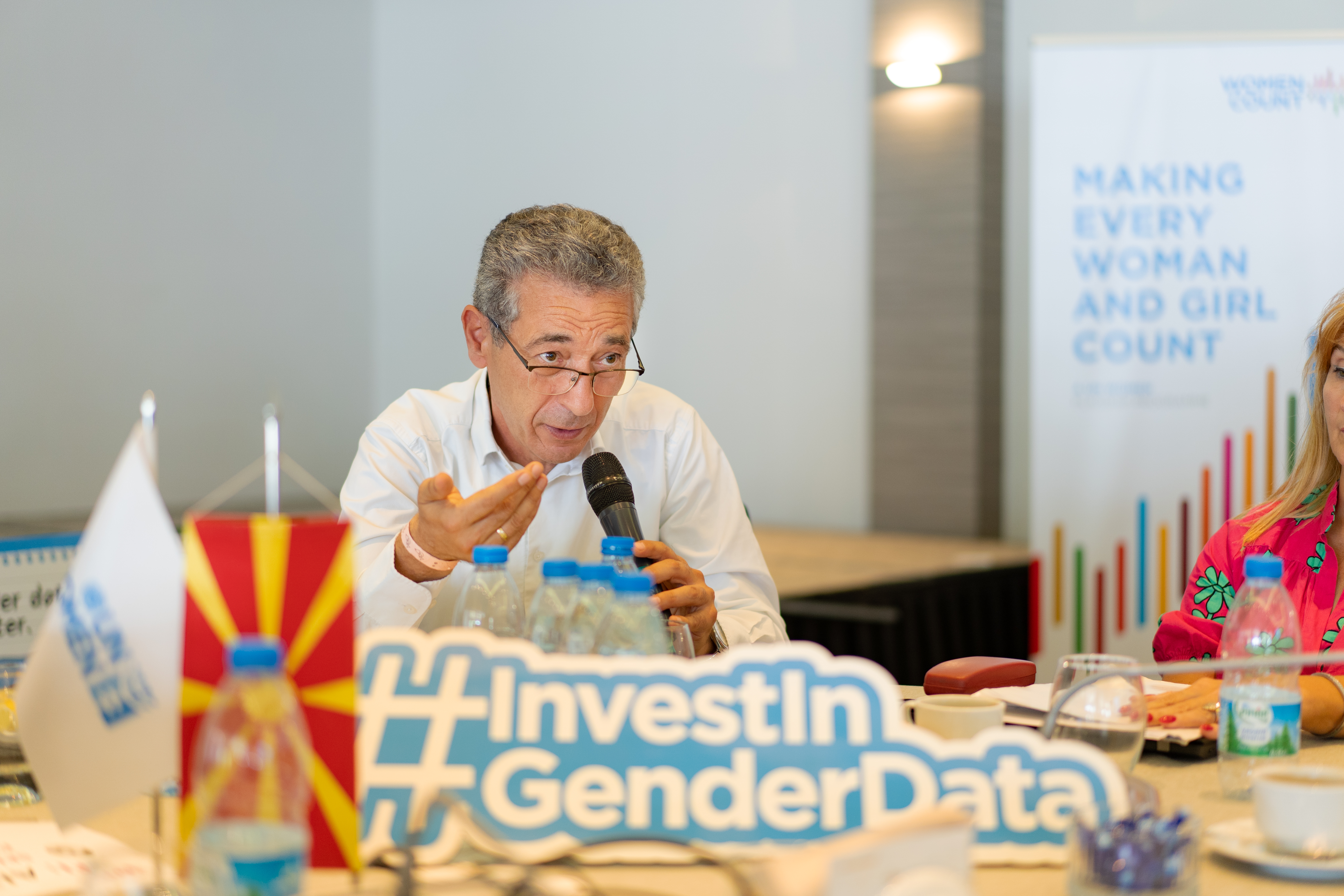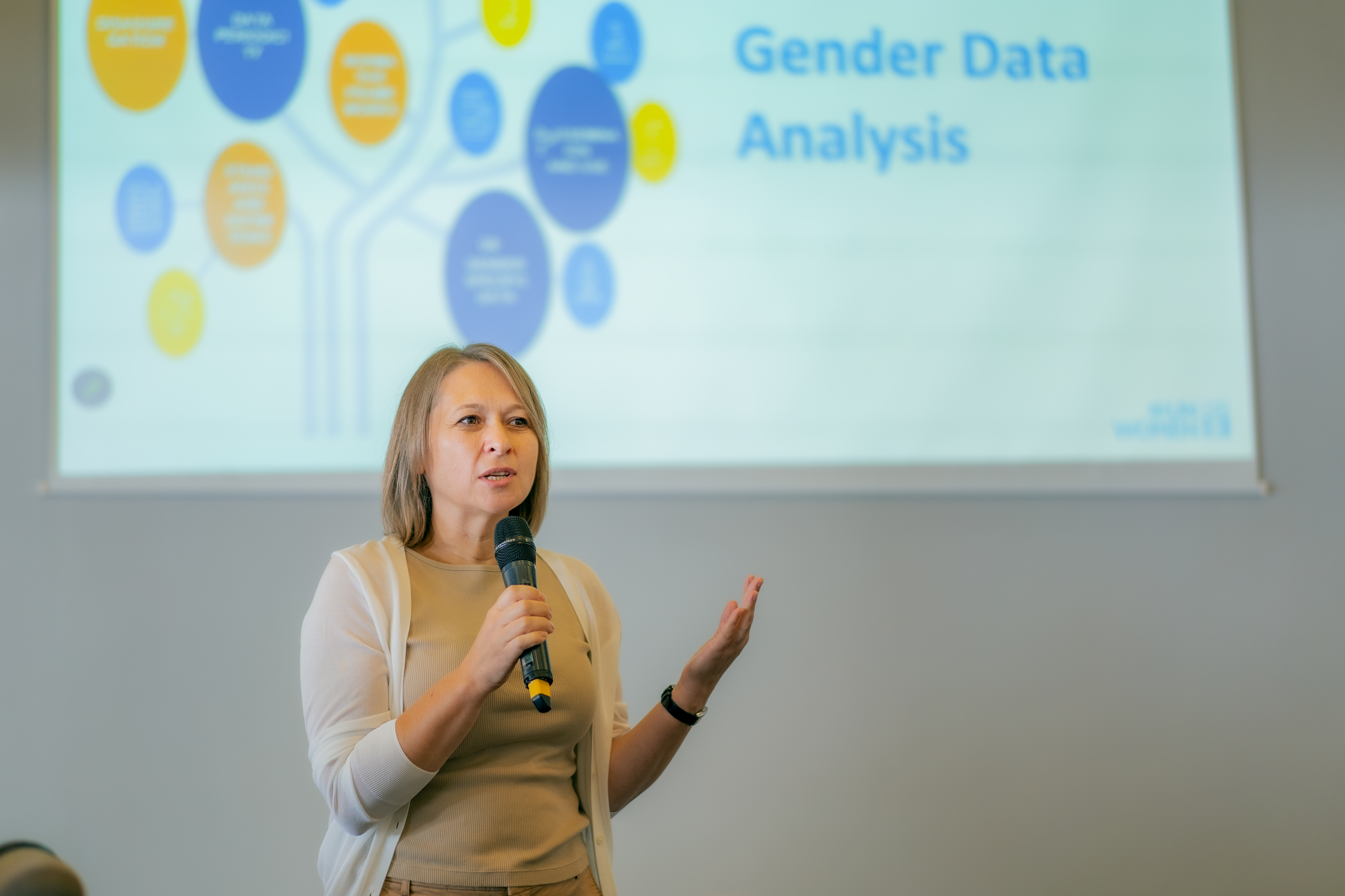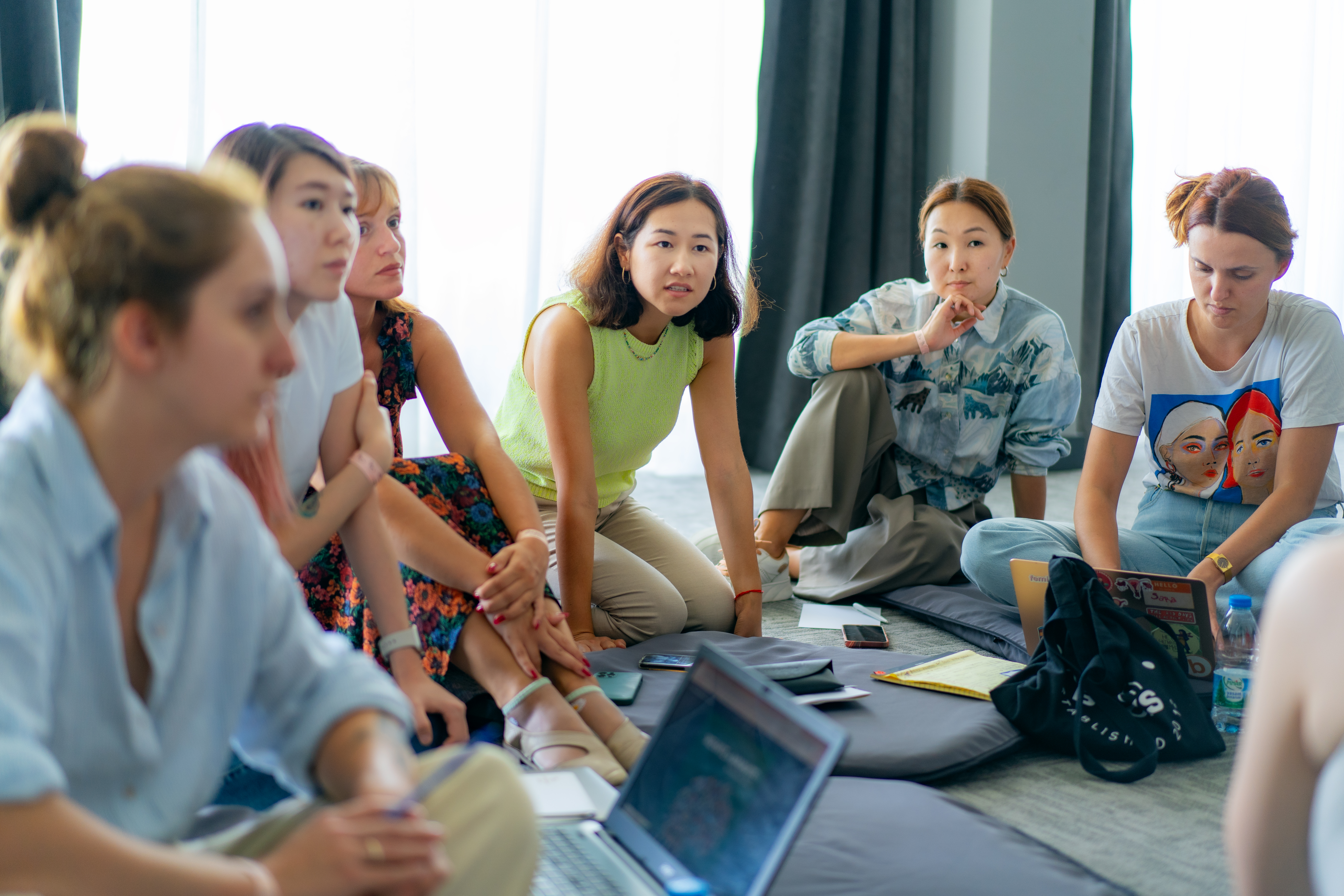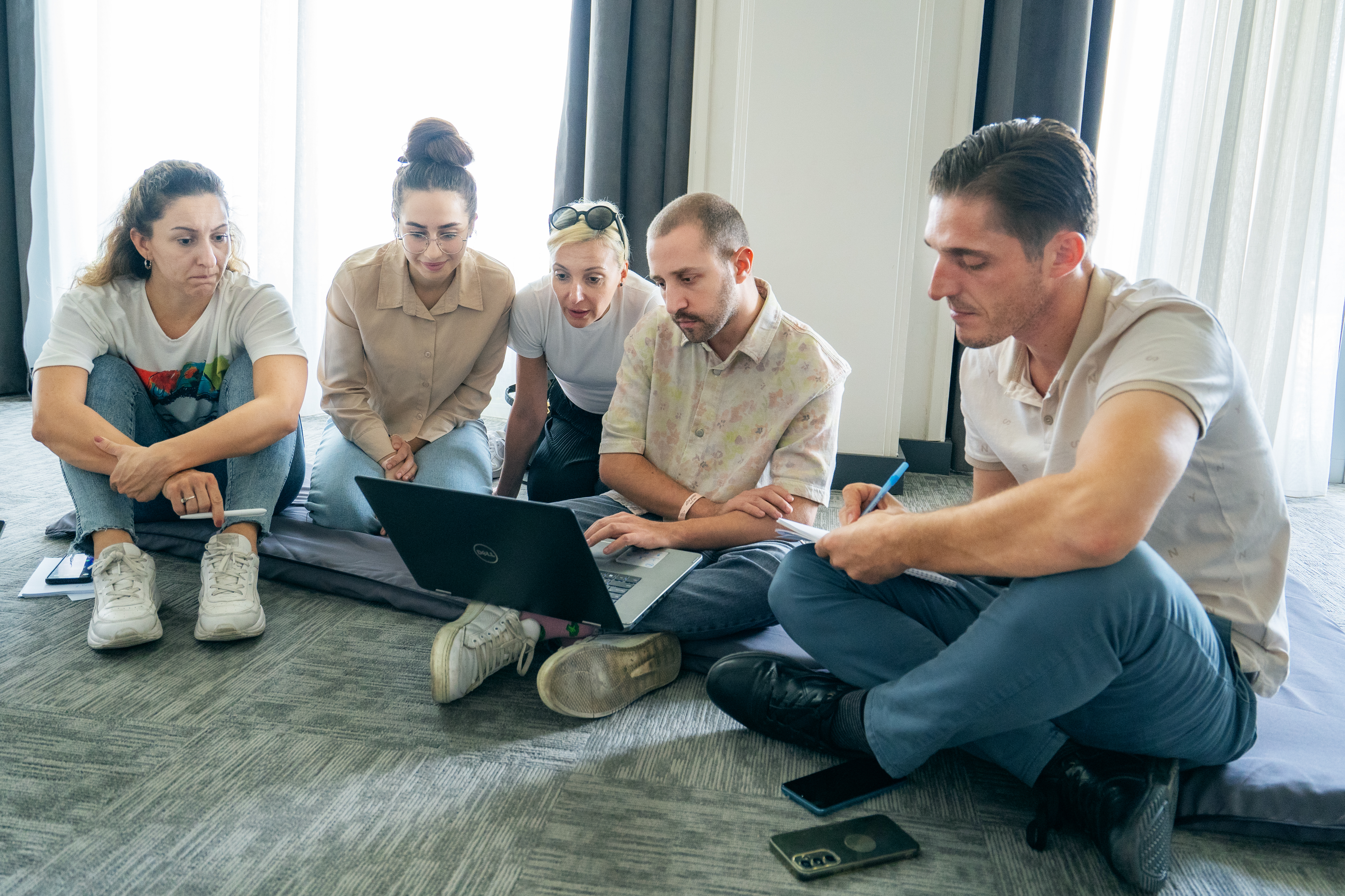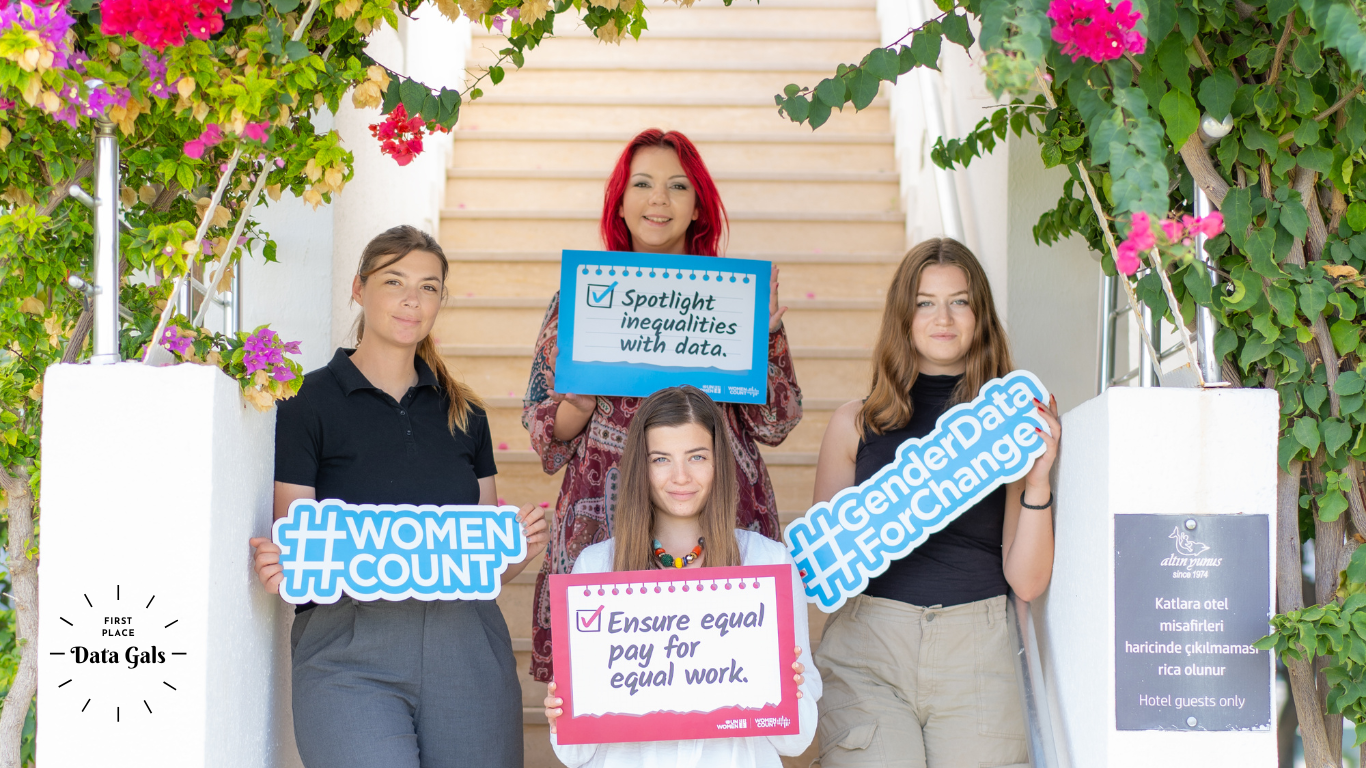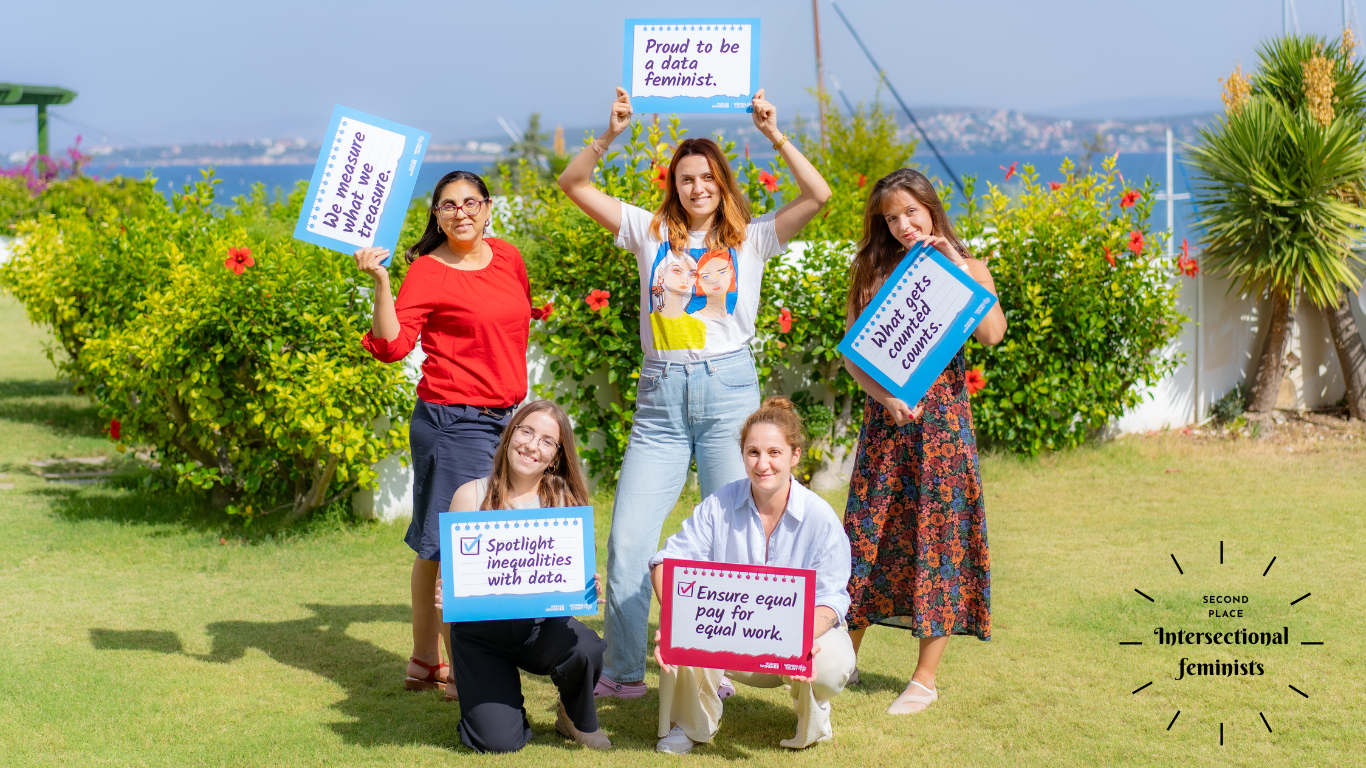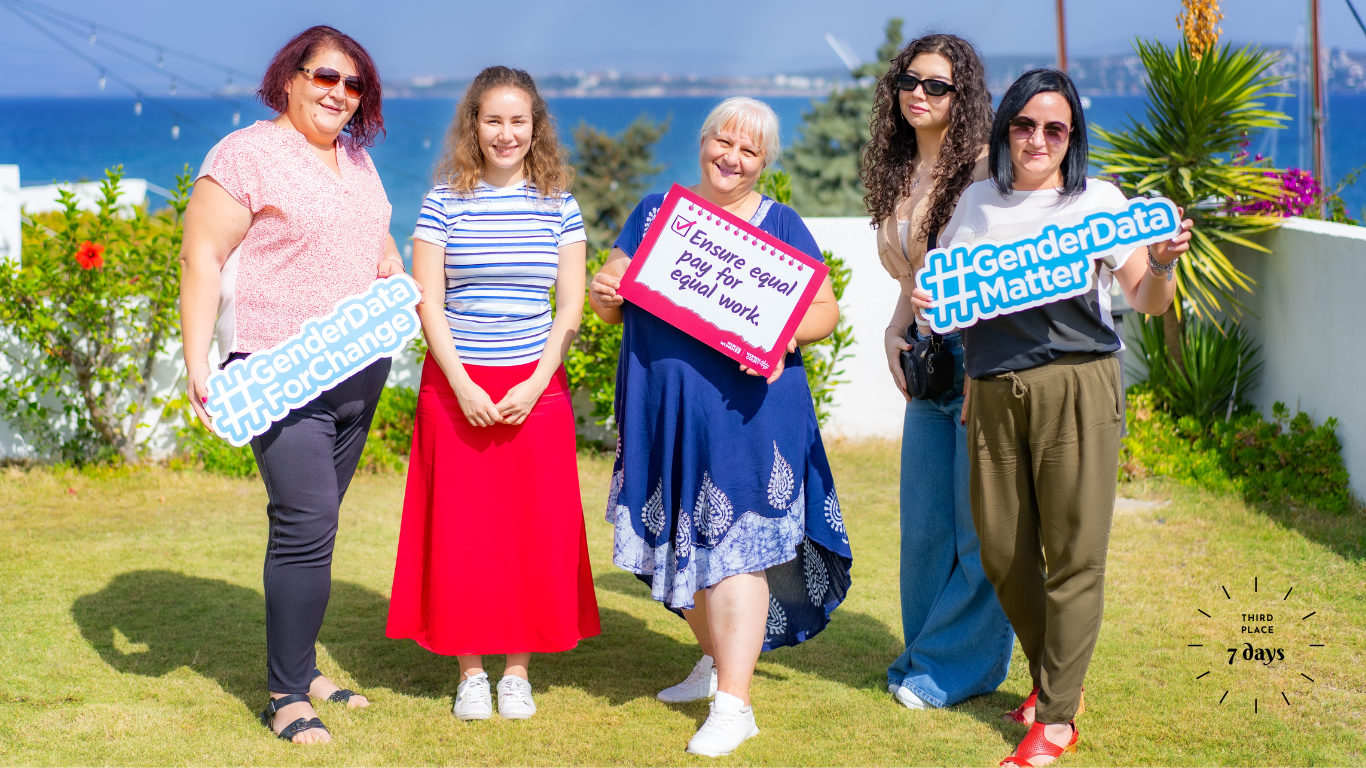Gender Data Bootcamp empowers data enthusiasts from North Macedonia to lead transformative change
Date:
On 25 – 29 September, 50 representatives of civil society organizations (CSOs), women’s organizations, state institutions, academics, youth and media from North Macedonia took part in a Gender Data Bootcamp in Izmir, Türkiye to foster data literacy and harness the power of gender data to achieve gender equality and the Sustainable Development Goals (SDGs), in alignment with European Union standards.
Organized as part of the joint initiative of the UN Women “Gender Equality Facility (GEF)” project implemented by UN Women Office in North Macedonia, funded by Sweden, and UN Women’s regional flagship programme “Making Every Woman and Girl Count” in Europe and Central Asia, in collaboration with the School of Data NGO, the bootcamp’s unique approach combined traditional capacity-building with a datathon, where diverse change-makers channeled their experience and insights to co-create data-driven solutions to gender inequality. This has paved the way for the second phase of the Project, which will involve partnering with the network of gender data enthusiasts who successfully completed the bootcamp.
Through the bootcamp, participants enhanced their understanding of the central role that gender data play in advancing gender equality, learned the key principles of data analysis, interpretation, visualization and communication, and gained invaluable skills for translating data into compelling data-driven stories focused on gender equality and women’s rights.
“Gender data are key to gender-sensitive policies and measures to achieve transformative change,” highlighted Vesna Ivanovikj-Castarede, Head of the UN Women Office in North Macedonia, at the Gender Data Bootcamp opening. “If [policies] are gender-blind, then prejudices that lead to discrimination can grow, strengthening existing stereotypes.”
Guided by gender data and communication experts, participants explored official statistics and open data sources to develop products about issues such as ending violence against women and girls, women’s economic empowerment and women’s meaningful political participation, among others.
Multidisciplinary teams worked together to tackle pressing gender issues by actively applying newly acquired skills.
“We are the producers of official statistics, but leveraging the power of gender data for the benefit of women and men in North Macedonia requires joint efforts,” emphasized Apostol Simovski, Director General of the State Statistical Office of North Macedonia, during the bootcamp.
The Gender Data Bootcamp gave participants the opportunity to network and collaborate with local gender activists, researchers, CSO representatives and international gender data experts. Participants gained new skills and hands-on experience in data analysis using different data and indicators produced by the State Statistical Office of the Republic of North Macedonia and other institutions, exploring communication techniques and visualization tools. They also researched, wrote compelling stories and improved their ability to present their findings effectively.
“The nature of my career as a teaching assistant in statistics and economics allows me to disseminate valuable insights that I have gained from this bootcamp to youth – my students”, underlined bootcamp participant Stefan Tanevski, a teaching assistant and researcher.
Another participant, gender and disability advocate and researcher Elena Kochoska added: “Gender data can identify the inequalities in society and [help us shape a] future … where everyone who is different can actually enjoy equal rights.”
Participants also engaged in rich discussions on data feminism, led by two research affiliates at the Data+Feminism Lab at the Massachusetts Institute of Technology (MIT). Participants learned about the key principles of data feminism, namely: examining and challenging power; elevating emotion and embodiment; rethinking binaries and hierarchies; embracing pluralism; considering context; and making women’s labour visible to inform data-driven interventions.
Participants also took part in the gender data visualization challenge, crafting compelling media products on gender equality while integrating gender statistics, with three outstanding teams being recognized.
The “Data Gals” team won first place for their video promoting women’s political participation at central and local levels in North Macedonia. The project highlights the importance of gender-responsive policies, such as gender quotas for women in leadership – thanks to which 39.2 per cent of North Macedonian parliamentarians are now women – to promote the full and meaningful participation of women in decision-making.
According to recent findings, North Macedonia’s education system still reinforces traditional gender roles, particularly in rural areas, with girls often being taught that their role is to take care of the home and family, be attractive, and prioritize marriage and children over a career. To address this issue, the second-place team “Intersectional feminists” developed a campaign called #FlipThePage to tackle structural inequalities and gender stereotypes within the educational system in North Macedonia.
In addition, a gender gap in employment for people aged 20–64 in North Macedonia persists (of 17.5 per cent compared to the European Union average of 11 per cent in 2020), with women far more likely to leave the labour force due to care and domestic work responsibilities. To tackle this issue, the third-place winners, the “7 days” team, developed a project on improving access to childcare and changing social norms around unpaid care and domestic work. The team explored relevant official statistics and open sources to identify the problem and offer potential solutions to drive changes in care economy.
The teams not only improved their skills but also demonstrated their commitment to finalize and use their products to advocate for gender equality in North Macedonia with the help of substantial mentorship from professionals. Final products will be available by the end of 2023.
